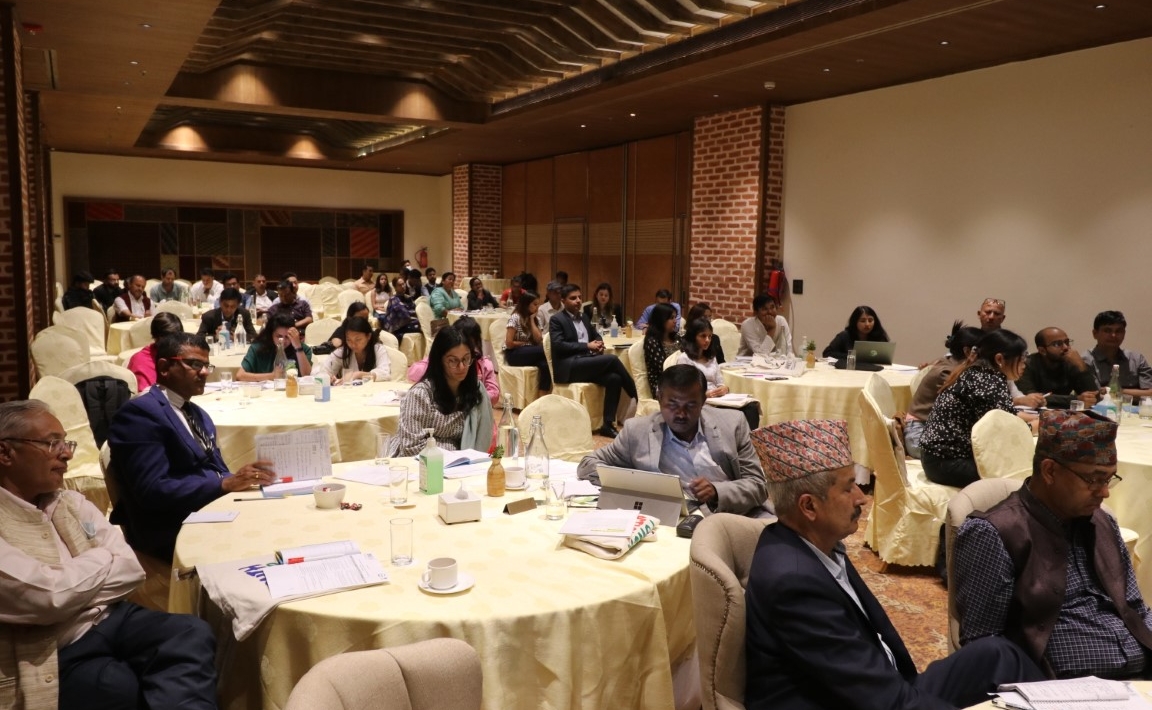On 19 May, Amnesty International Nepal, in partnership with IUCN – World Commission on Environment Law /Nepal Chapter, organized a roundtable discussion on the topic ‘Climate Change and Human Rights’ in Anamnagar, Kathmandu.
The program was organised with an objective to discuss and deliberate on the impacts of the climate crisis and initiate a constructive dialogue on climate change issues from a human rights perspective in Nepal among experts/stakeholders from the legal fraternity, academia, representatives from civil society organizations, media, government agencies, development partners, and others.
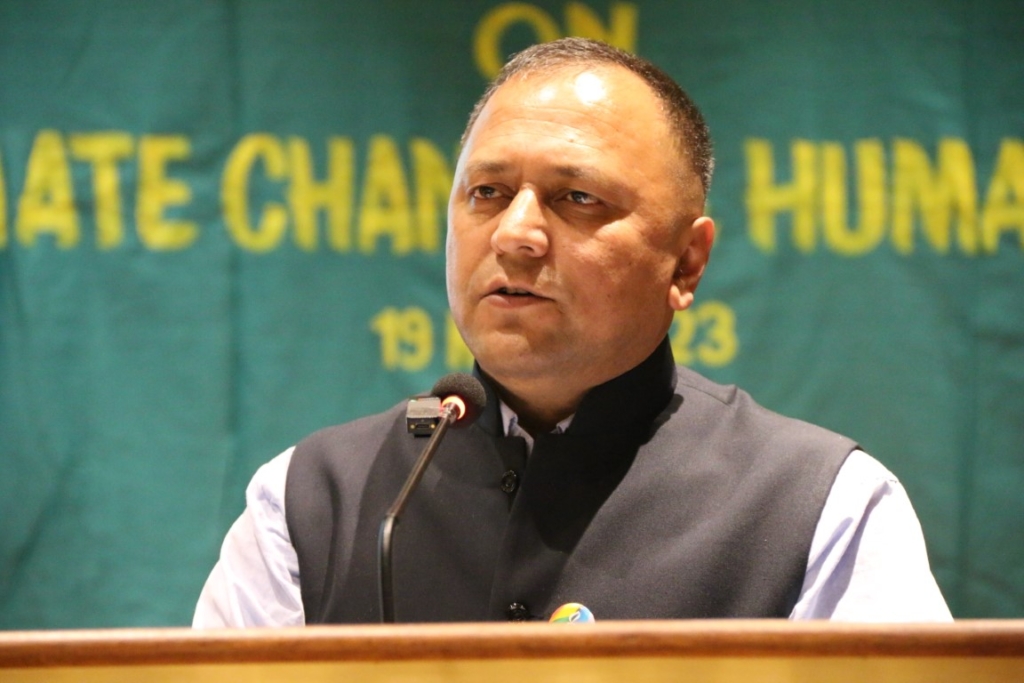
With over 70 people in attendance, the event kicked off with a welcome note by the Director of Amnesty International Nepal Nirajan Thapaliya. “Amnesty International Nepal, as a part of the global Amnesty movement, has been working on the protection, promotion and defence of human rights for decades now, but we have started looking into the issues of climate change and the impact it is having on human rights fairly recently, from 2017. Realizing the urgency of the crisis, in 2018, we started working on our next strategic direction which we adopted in 2021. The eight-year global strategic framework that we now have includes “securing climate justice” as one of the main pillars of our work that we will do in the next years and decade to come. We have taken the climate crisis we face today as fundamentally a consequence of the deep-rooted injustice in the world. Therefore, human rights concerns emerging from the climate change is one of our major focuses,” he said.
Indeed, climate justice is one of the most critical issues in today’s context. As the world tries to navigate through the unfolding global climate crisis and take up the best way forward, Mr. Thapaliya stressed on the notion of “common but differentiated responsibilities” nations have towards addressing the climate crisis.
“We all have played a role in climate change, but some nations have played a bigger role than others. All nations today have a common responsibility to do their best to combat the crisis and that is what we are going to be discussing today,” he said.
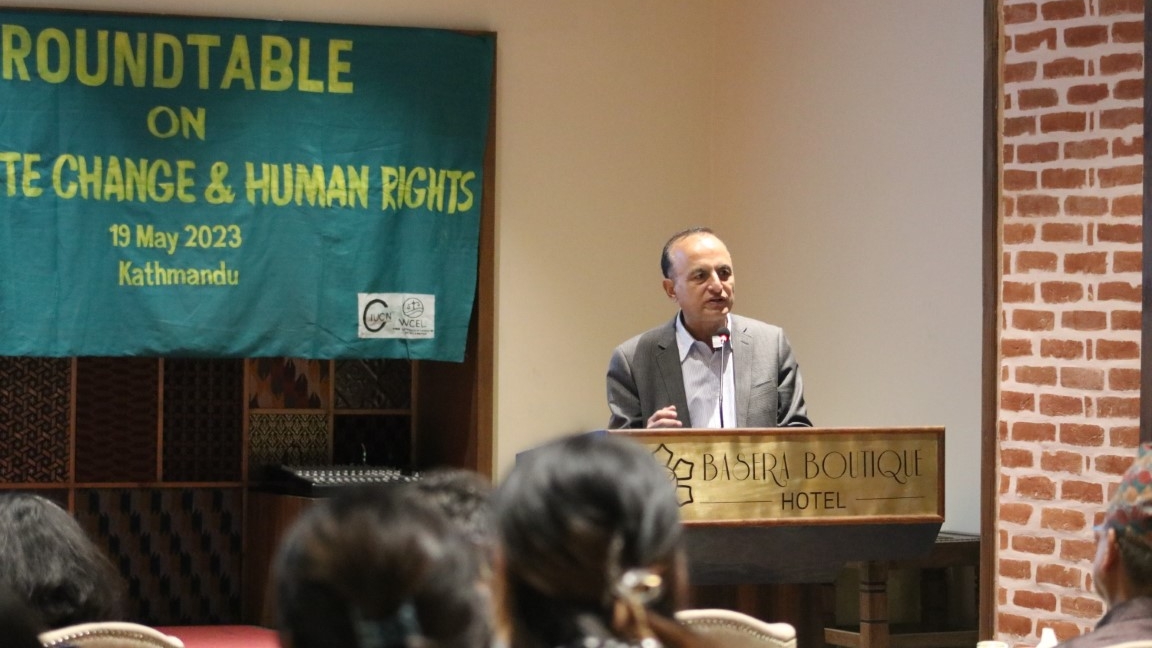
The highlights of the evening’s discussion were three presentations, with the first titled ‘Overview of the Challenges of Climate Change in Nepal’ which was presented by Dr. Ravi Sharma Aryal, Chair of IUCN-WCEL/Nepal.
Dr. Aryal’s presentation gave the participants an introduction and overview of the phenomenon of climate change, how it impacts the health and livelihoods of most Nepalis, and the challenges that comes with addressing climate change issues in the country, especially in the context of accessing human rights.
“Climate change is not just an environmental issue but also a critical human rights and social justice issue,” said Dr. Aryal, also stressing on the gender impact climate change has with women being directly more impacted by climate change and climate-induced disasters. He also highlighted the fact that according to the Global Climate Risk Index 2019, that Nepal is the fourth most vulnerable country in the world to climate disasters.
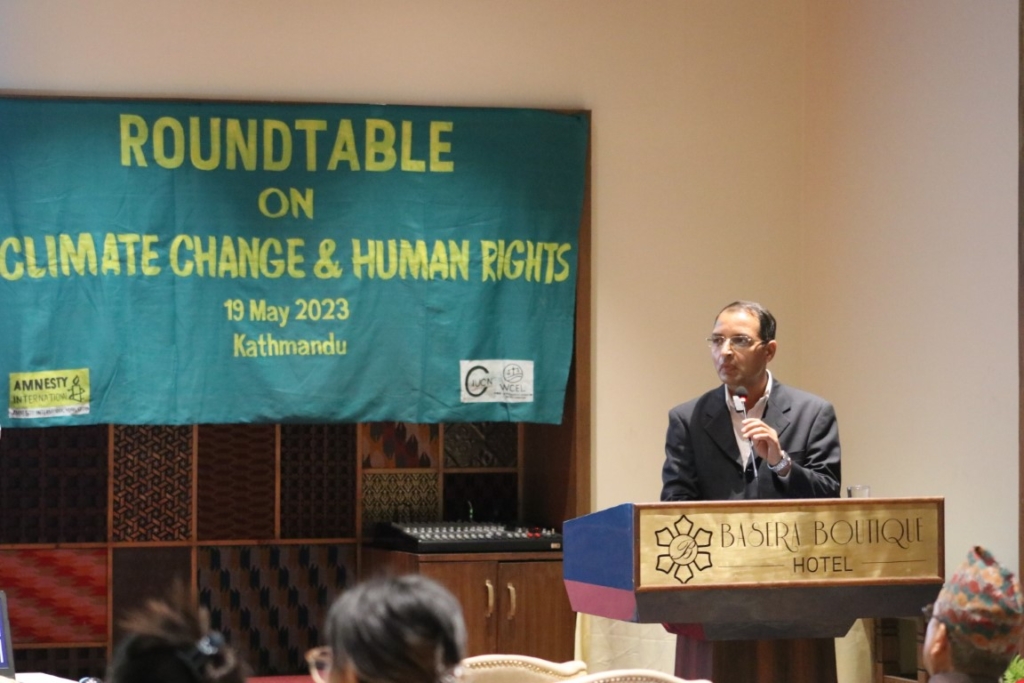
Following Dr. Aryal’s presentation was advocate Raju Prasad Chapagai’s presentation on the topic – Climate Change and Human Rights: Unpacking their Interrelationship, which dissected the complex interrelationship climate change and human rights has and how this affects different generations.
“Climate change is an intergenerational justice issue which affects our right to life, health, food, water and sanitation, adequate housing, etc.,” said advocate Chapagai.
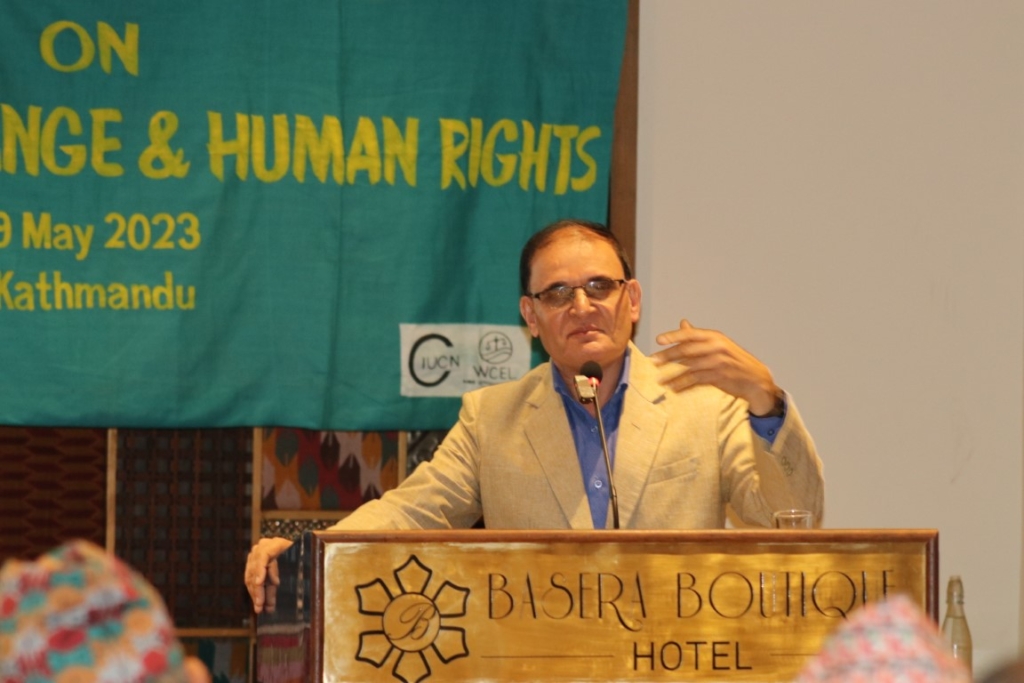
The final presentation was by Dr. Gokul Prasad Burlakoti, Deputy Chair, IUCN-WCEL/Nepal, who spoke on the title “Judicial Response to Climate Change Issues in Nepal: A Critical Overview”. His presentation provided a judicial perspective on providing environmental and social justice in Nepal, stressing on how lawsuits are acting as a catalyst in climate change policy, civil rights issues, prevention and mitigation, securing justice, among others. He also stressed the need for a dedicated bench and an environmental court that can directly address climate change issues on a case-to-case basis.
“Every citizen has the right to a clean and healthy environment, it’s a fundamental human right that are interconnected with constitutionally accepted environmental principles,” said Dr. Gokul.
After the conclusion of the three presentations, the floor was opened for questions from the audience which was followed by guest speakers briefly sharing their perspectives on the climate crisis. Among the speakers were Honourable Justices Dr. Ananda Mohan Bhattarai and Sapana Pradhan Malla from the Supreme Court Justice; Prof. Dr. Amber Prasad Pant; Dr. Yamuna Ghale, Agriculture and Food Security Expert; Dr. Ram Charitra Shah, Executive Director, Center for Public Health and Environmental Development (CEPHED); and Kedar Poudel, Former Secretary, National Human Rights Commission.
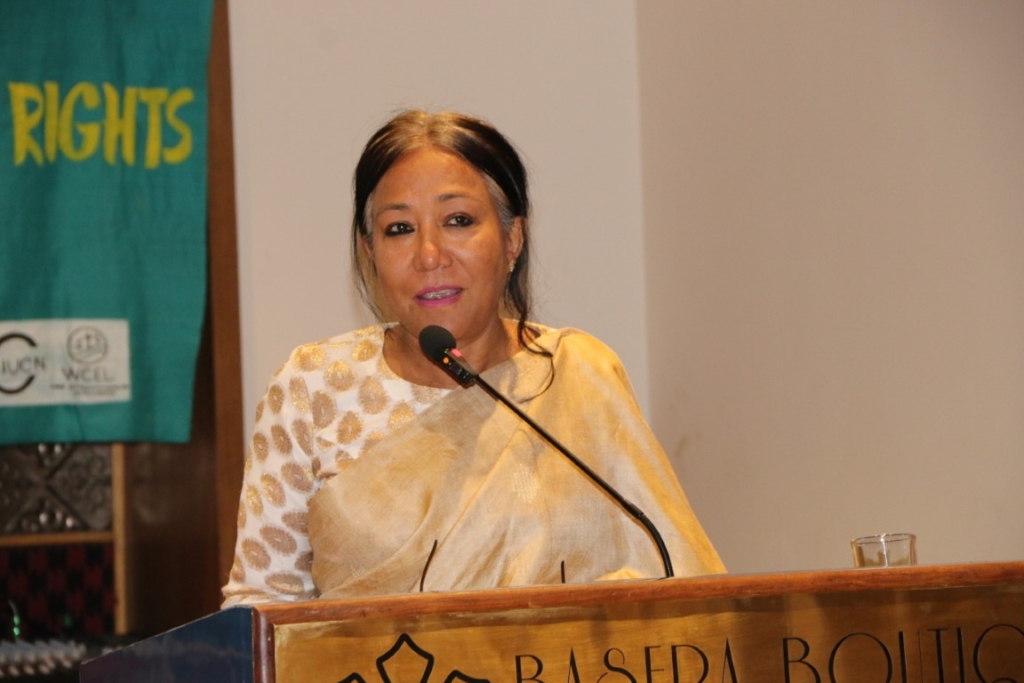
“Climate change disproportionately affects marginalised, vulnerable communities, like women, children and the elderly. When we talk about climate justice, we need to work collectively to promote and safeguard human rights, and to ensure help reaches those communities that are affected most. While we have come a long way in institutionalising human rights in the legal framework in Nepal, we have to focus on policy drafting and advocating for climate justice,” said Sapana Pradhan Malla.
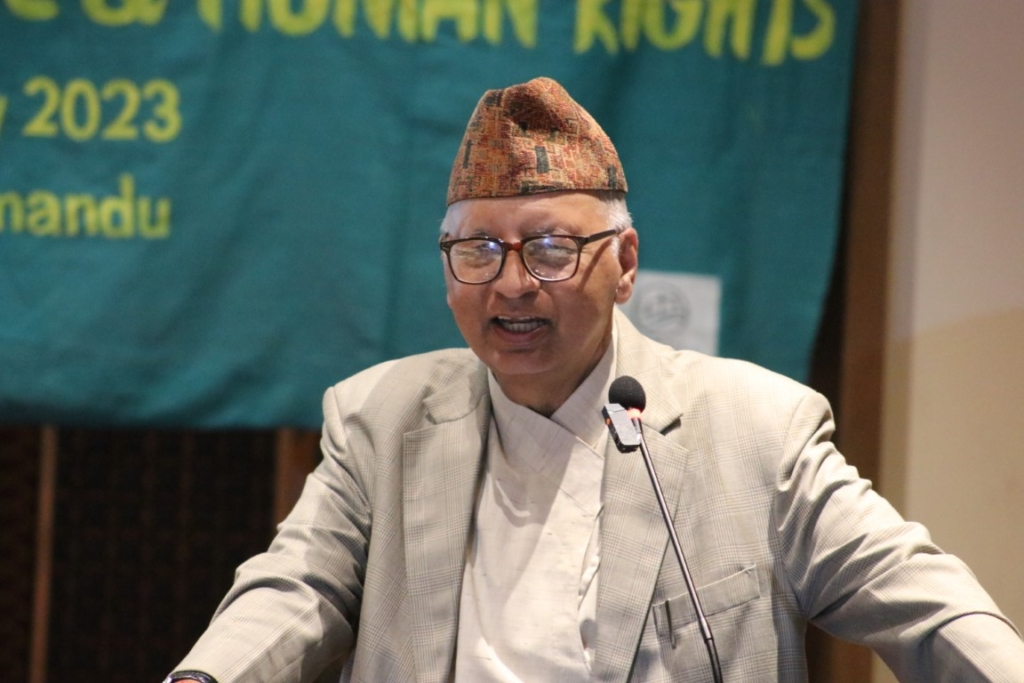
Honourable Justice Dr. Ananda Mohan Bhattarai dwelt at length on the intricacies of adjudication on matters relating to environmental and human rights issues, and praised the PIL activists in Nepal coming forward daringly to challenge the pertinent issues of the day thereby contributing to build a robust jurisprudence that can guide and serve as an eye-opener to the policy-makers. While acknowledging some of the important gains at the judicial and institutional level, he, however, bemoaned the state of lax implementation of laws, polices, international commitments, and at times even court verdicts.
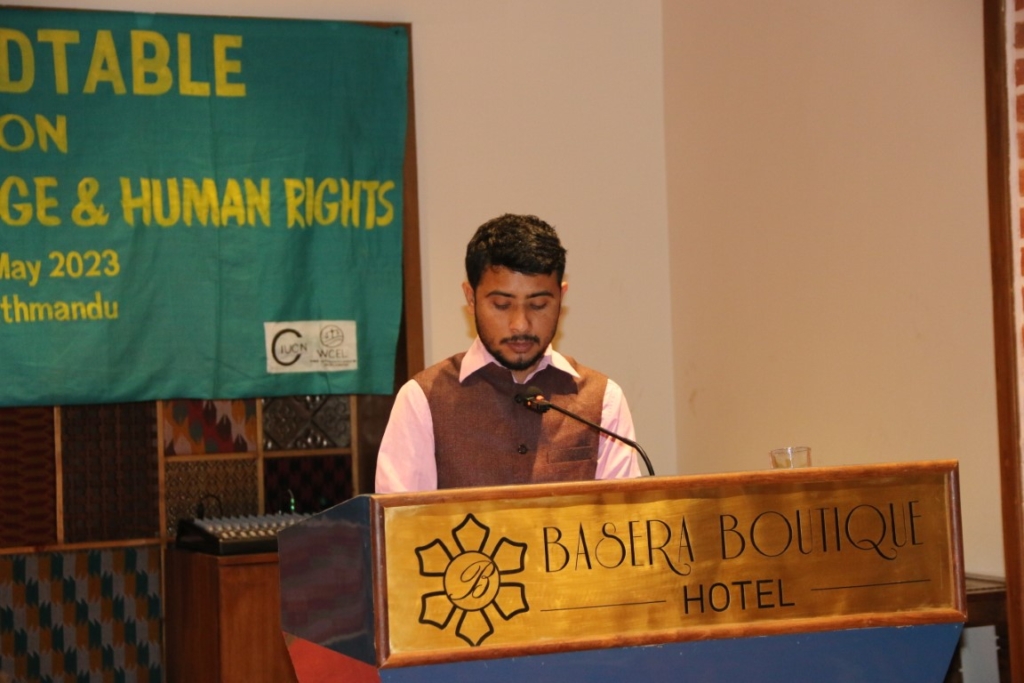
The event ended with a closing note by Amnesty International Nepal’s Chairperson Bipin Budhathoki who stressed the gravity of the issue of climate change from the standpoint of human rights. “In order to combat the crisis we are currently faced with, we now have to put the issue of climate justice in Article Zero of the Universal Declaration of Human Rights, and move accordingly,” he said.


